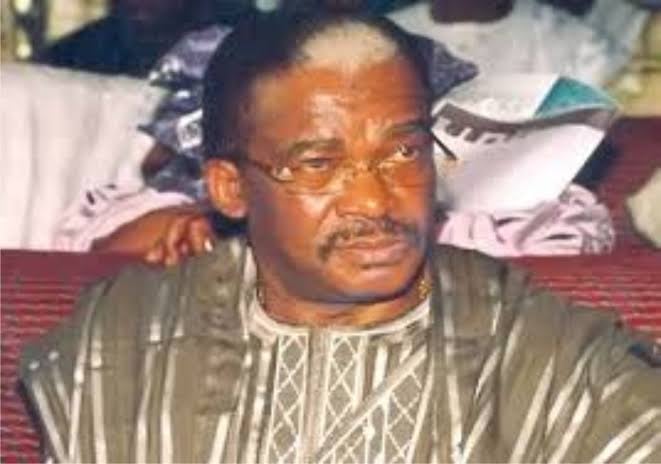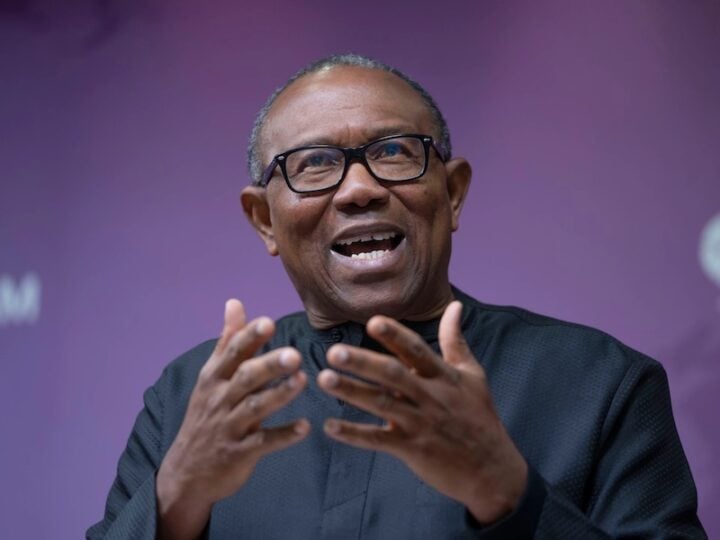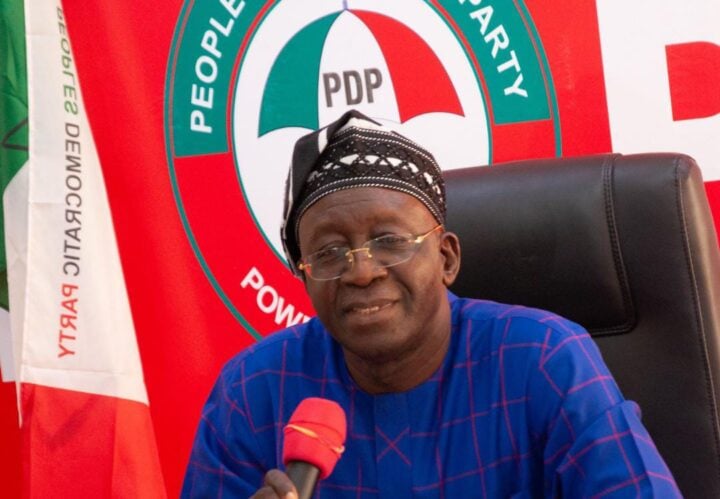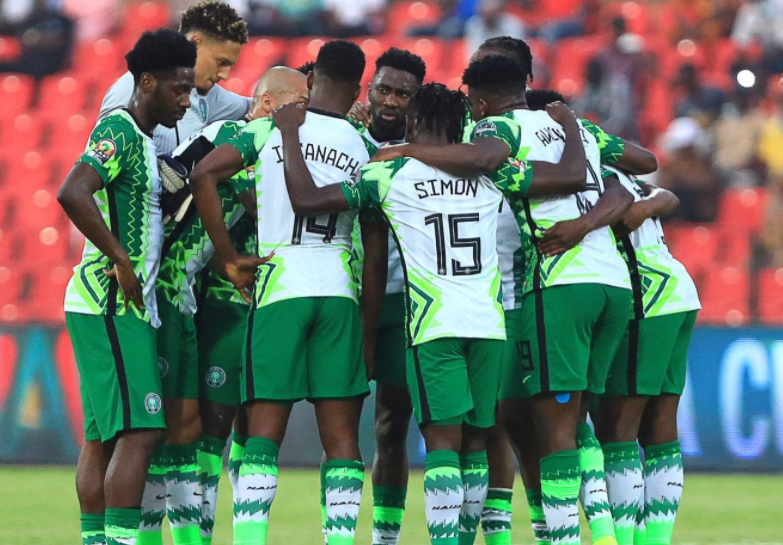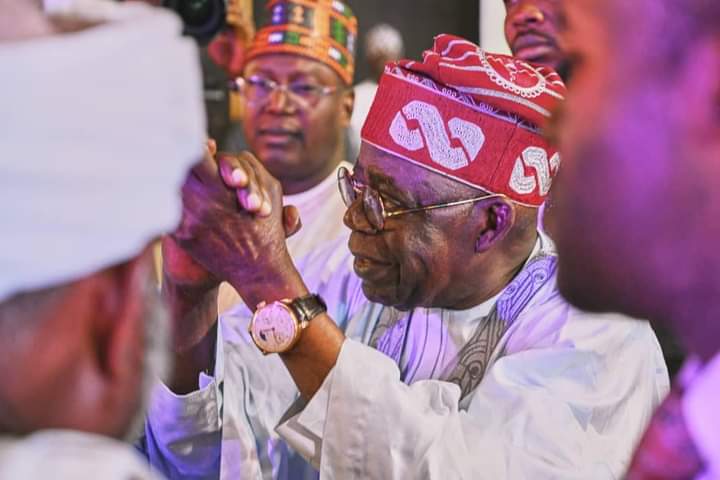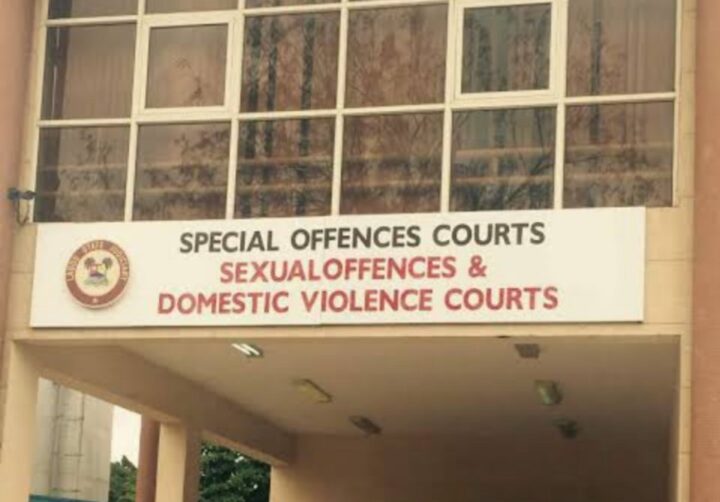Oladipo Diya was easily recognisable. A patch of golden hair was permanently perched atop his forehead. This easily gave him away as the man who was once Nigeria’s most powerful number two citizen during the military regime.
Not many could boast that they escaped with their heads intact between their shoulders once caught in the notoriously point-blank crosshair of Sani Abacha, Nigeria’s former military dictator. Not many politicians, not many “rebellious” military officers. Certainly, not many of whom Abacha had red-marked as a “chief coup plotter”. But Diya did.
Diya, Abacha’s de-facto second in command, was said to have survived several assassination attempts and he outlived his boss for another quarter of a century until his death on Sunday at the age of 76.
Although he survived the 1997 “coup plot” that he was accused of masterminding, he never quite shook off the stigma and discourse around the incident. Sadly, the incident became the major highlight of his life while a brilliant military and political career was reduced to footnotes.
Advertisement
An old, grainy CCTV footage underscores the denigration: Diya supposedly begged for his life before Abacha after being named the coup’s leader. Diya grovelled at the feet of Abacha, who looked down at him with indifference.
Fate, destiny or luck, Diya emerged from the scare with his life intact.
EARLY LIFE AND MILITARY CAREER
Advertisement
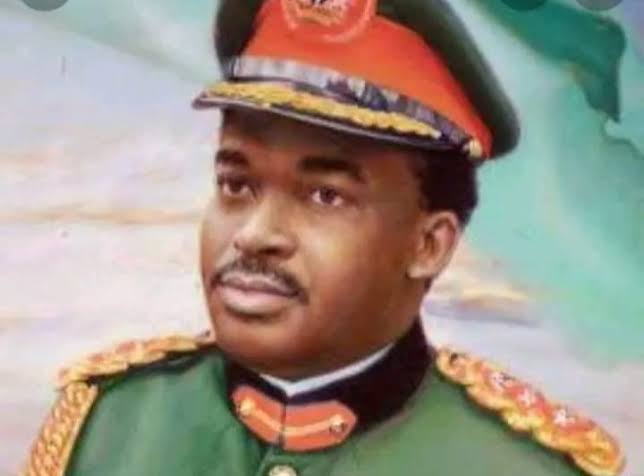
Diya was born in Odogbolu, Ogun state, on April 3, 1944. He had his elementary and secondary education in both Lagos and his native Odogbolu.
From there, Diya joined the Nigerian Defence Academy, Kaduna, and he was commissioned in April 1966. He was a combatant during the Nigerian civil war from 1967 to 1970.
While still serving in the military, Diya gained admission into Ahmadu Bello University, Zaria, where he obtained an LLB degree. He then went to the Nigerian Law School before being called to the bar.
Advertisement
At the age of 40, he was appointed the military governor of Ogun and ran the state from January 1984 to August 1985 during the regime of Muhammadu Buhari.
At one point, he was posted to command the Nigerian contingent in Lebanon. He also attended the United States Army School of Infantry, the Command and Staff College, Jaji (1980 to 1981) and the National Institute for Policy and Strategic Studies, Kuru.
Diya was GOC 82 division in Enugu and later GOC, 3 armoured division Jos. He later moved to Lagos where he was appointed chief of defence intelligence. Then, he was appointed commandant, National War College (1991-1993), and later chief of defence staff during Shonekan’s interim government.
By 1994, he was promoted to vice chairman of the Provisional Ruling Council (PRC) of the military junta led by Abacha. He was effectively the de-facto second in command.
Advertisement
The late military officer runs a law firm and also manages a church. He was also the chairman of LOTAD funeral services.
In 2017, Diya’s house in Ikeja GRA area of Lagos was gutted by fire. Three years after, he lost Deborah Folashade, one of his wives.
Advertisement
LIFE AS AN ‘ABACHA BOY’
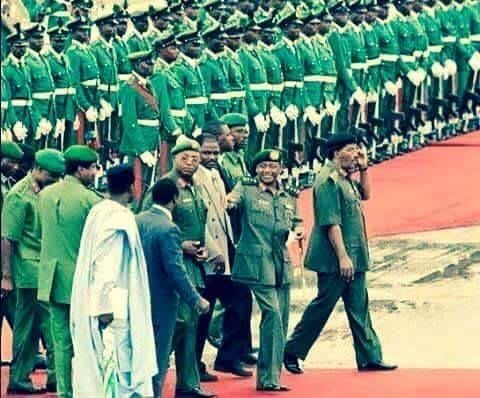
Abacha came into power in 1993 after ousting the interim government led by Ernest Shonekan. All these changes came against the backdrop of the annulment of the June 12 election. The poll was believed to have been won by Moshood Abiola.
Advertisement
Members of the Abacha-led government were perceived as betrayers of democracy for prolonging the handing over to Abiola. Diya was particularly flayed because he hailed from the southwestern part of the country — same state and region Abiola emanated from.
However, Diya was seen as the figurehead number two man. He was asked by his kinsmen to quit the military regime over Abacha’s high-handed and how the dictator had failed in his promise to hand over Abiola’s mandate. When he was told to sign a detention order to incarcerate Abiola, he refused to sign it.
Advertisement
In an interview with TheNEWS, Bola Tinubu, former Lagos governor and now president-elect, said Diya later lost his influence in Abacha’s government and could not fight for the June 12 mandate.
“Suddenly, a message came from Diya that he needed to see me. I then went to meet him at his house. They already had the information that Abiola was to be sworn in (laughter),” Tinubu was quoted to have said.
“Diya said ‘you’ve got the judiciary supporting you, you should now get the military backing. We are ready to back you, let’s go.’ Diya took me to Gen. Abacha’s house. There Abacha told me, ‘look, distinguished senator, you are the closest person to Abiola. I voted for Abiola, I like us to handle the situation like gentlemen. We heard of a plan that he was going to swear himself in. In fact, the constitutional crisis that is on the ground now is a big one. This is the ministry of defence, we will install Abiola and put the military behind him. Now that we have this judgement, Abiola should, however, not swear himself in.’
“I went to Abuja to meet Diya in the company of a prominent common friend of ours. ‘General Diya, sir, what about the mandate?’ He said, ‘We are in crisis, we are still not stable, and we have so much to do.’ Then I said, ‘You probably have deceived us, six months have lapsed, and your promise could not be kept.’ Therefore, I went to discuss this with Abiola. The indications were that these people were liars and they would not actualise June 12. Then Diya’s influence started waning. Abiola said the honeymoon was over, he had to fight for his mandate.”
ATTEMPTED COUP OR PHANTOM COUP?
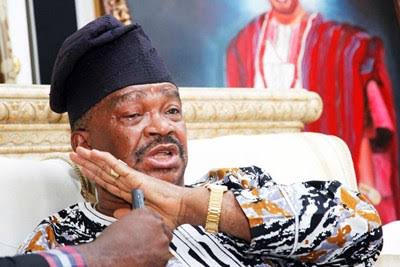
Life with a principal as paranoid and vengeful as Abacha was bound to end more badly than good. The ugly light of Abacha’s paranoia caught Diya in 1997.
When he was accused of leading a failed coup alongside seven other military officers, Diya was arrested with 10 other top army officers, including Tajudeen Olanrewaju, Abdulkarim Adisa, and a civilian, but Diya denied involvement in the coup. He claimed the charge was a set-up by Ishaya Bamaiyi, Abacha’s chief of army staff.
However, Abacha presented a video portraying the suspects confessing to the crime. The footage would later be dismissed as an edited clip.
On February 14, 1998, the suspects were arraigned before a military tribunal presided over by the late Victor Malu.
The defendants entered the courtroom in handcuffs and with their legs chained and were given a list of lawyers to represent them but only from the military.
The military tribunal gave the death sentence to Diya and five others for treason.
But a few months later, fate saved Diya as Abacha died through mysterious circumstances in June 1998 before the guillotine swung.
Years later, Bamaiyi maintained that Diya had wanted to use him to overthrow Abacha. He said Diya complained that Abacha “was not doing well.”
According to him, Diya also said Abacha did not come to work early and was not listening to him and other senior government members.
“On one of such visits, at his Ikeja residence, he mentioned how Gen. Abacha had not been doing well. He made the statement during the next visit, and I asked what the problem was,” Bamaiyi wrote in his book titled ‘Vindication of A General.’
“On the next visit, Diya said openly that there was a need to remove Gen. Abacha and that he was being blamed for the failure of the government from various quarters.
“I told him I would think it over and get back to him. I informed Gen. Abacha, who said he was going to put Diya on trial.”
In December 1998, some security agents attempted to blow up an aircraft that was meant to convey Diya to Makurdi for the burial of the mother of Lawrence Onoja, his principal staff officer. But he was 10 minutes late and therefore escaped the bomb at the Abuja airport. The agents were killed and Diya refused to continue with the journey. That was said to be the fifth assassination attempt on his life.
At a particular time, he was said to have been taken away from prison and secretly kept in a house in Kano, waiting for death from Abacha’s strike squad. But the news of Abacha’s death saved him.
STATE PARDON
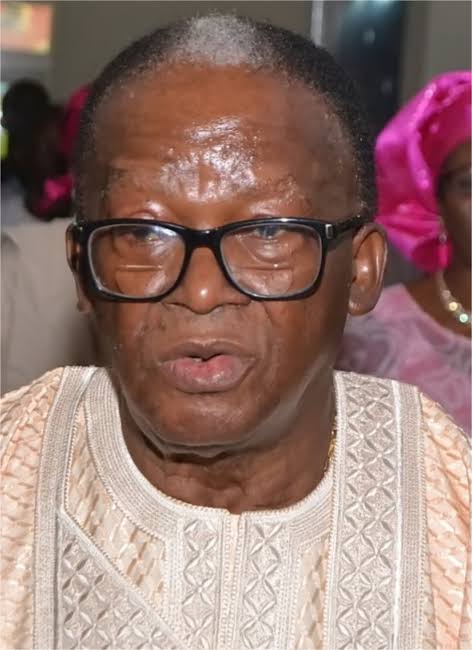
After the death of Abacha, Abdulsalami Abubakar, the succeeding military president, commuted Diya’s sentence to a 25-year jail term. He was at different times in prisons in Jos, Plateau state, and Potiskum, Yobe state. He was eventually released.
It took another 13 years before former President Goodluck Jonathan granted Diya a state pardon.
Speaking after the pardon, the former Ogun governor said he had no regret serving in the Abacha-led government.
“But for the grace of God, we would have been executed. But like my friend, Babatope, would say: I would have regretted if I had not served in that government,” Diya said.
Diya was said to have repeatedly said: “Abacha wanted me dead at all cost, but I was saved by the grace of the Almighty God. Life belongs to God. It is His to give and take at a time, decided only by Him. May the Almighty God have mercy on all of us.”
Years after, Diya was also reported to have defended the Abacha regime, saying the military junta could not be said to be tyrannical. He said the regime was not “wicked and oppressive”.
“The regime of General Sani Abacha assembled one of the best cabinets ever in the country. Tell me anybody that was a gentleman that did not serve in the government,” he was quoted to have said.
WHEN THE DUST FINALLY SETTLED
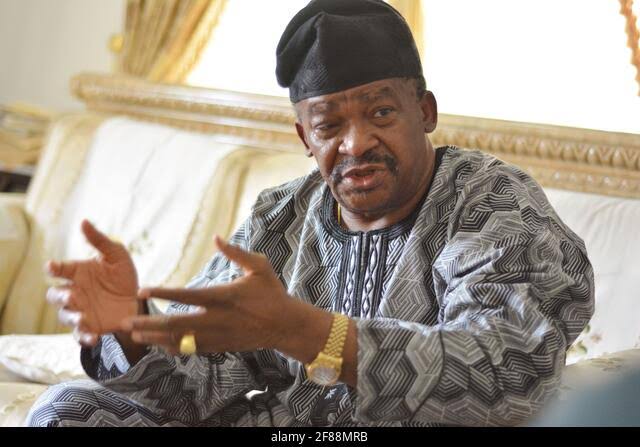
Diya relatively retired from public life after the near-shave with death.
In 2015, Diya said he preferred to remain in the backseat and not contest political office.
“Everybody is a politician. It is either you are quiet and you are not a participant in politics. But there is no human being that is completely out of politics. All you do is that you remain at the background, you sit and watch and that’s all,” he said.
“Now, I’m a grown-up person. I prefer to remain in the backseat and watch events from the sideline. When it needs correction or need for you to voice out completely, you say it.”
Nevertheless, Diya maintained that the video where he was alleged to have begged Abacha for his life was misconstrued. Misinformation, he yelled.
He said he had only gone to Abacha to beg him to release the officers who were detained for approaching the military president about his style of governance.
“We were talking of leaving in October and these officers said they were going to tell Abacha. And they were all in mufti. So, when I learnt that they had been arrested, I was stunned,” Diya said.
“I went to Abacha and said ‘These officers came to me and said they were coming to discuss such and such matter with you.’ And I said ‘Please release them. I am responsible.’ How that tape now came out now and turned out that I was begging Abacha. Up till now, nobody can say that they heard a single word from that tape.”
Add a comment
